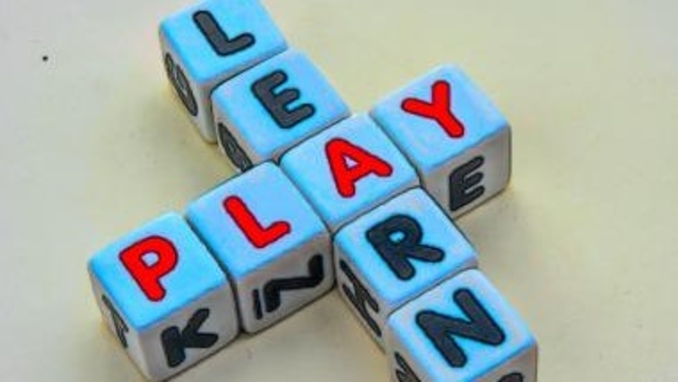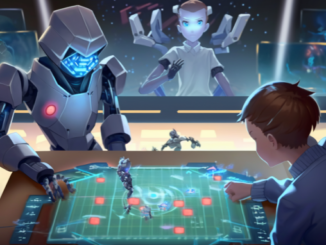
Over the last couple of weeks, a conversation started, in a games-based learning community to which I belong, about how to talk about games-based learning, to two groups of people, in particular – those who know about games and games design, but lack skills in and knowledge of, learning design and practice, and those who know about learning, but don’t yet grok how games and gamification can fit into that.
This small book by Vasilis Gkogkidis, might not contain much that is new to the average reader of Ludogogy, who is already (I am assuming) a convert to games-based learning, and has perspectives on both learning and games. However, this is not to say that it would not be useful to them. Indeed, its very brevity, makes it ideally suited to the latter part of the conversations I have been having. If you wanted to be able to explain the pedagogical value of games and gamification to someone who already has a grounding in learning, without asking them to dive into the findings of academic studies for themselves, and in a form that allow them to grasp the fundamentals quickly and clearly, then this book would work extremely well.
The formats of the chapters themselves are also ideal in this regard. Each chapter (and indeed sections within chapters) deals with a specific topic and is followed by a list of exercises to follow to consolidate the points made, games to play which illustrate game mechanics or a specific kind of play experience, and ‘Deep Dive’ references, for those readers whose interest has been piqued, and who want to explore further.
As I have also been reading Geoff Engelstein’s ‘Building Blocks of Tabletop Games Design’, the chapter on Games Mechanisms looks very slim. But Gkogkidis’ intention is not to be exhaustive, and I think the choice of mechanisms (or rather categories of mechanisms) he has made, as an introduction to this concept for educators, is just right. The importance of Feedback and Meaningful Choices cannot be overemphasised in a learning setting, and mechanics which introduce timing and randomness are important for the management of learning and to level the playing field in multi-ability settings.
A whole chapter is dedicated to the important subject of developing narrative in learning games, along with copious examples of narrative frameworks and a choice of games which will give a good contrast between play where the narrative is merely a device to support gameplay and that where it is the central pillar of the play experience.
Gkogkidis does not neglect the less ‘fun’ aspects of the games design process, prototyping and playtesting, either, with clear and succinct instructions on how to do both of these.
At the end of the book there are case studies of specific learning games, and I was delighted to see that one of the featured games was ‘Project Ninjas’, by a previous Ludogogy contributor, Tania Vercoelen. Part of the chapter is in the form of an interview with Tania, which answers many of the questions which an organisational learning professional considering using games for the first time might need answered. One of the other games featured in this section (there are four) is ‘I Lost my Mummy’, and I particularly like that Vgogkidis has included games for both adult learning and for children in this section, without finding it necessary to explicitly make the point that GBL is suitable for both these constituencies.
The conclusion to the book contains the very wise advice to start small (with games design) and gradually build, based on iteration and feedback, and a list of references, which is pleasingly representative of the main concepts (and the main thinkers) which a fledgling learning games designer will need to start them on their way.
As a text for the budding learning games designer, (or learning game sceptic) in your life, this book would make an excellent primer, with plenty of hands-on practice to get them started and enough follow-on reading to help them continue that journey, once they have begun.
‘Designing Games and Gamification for Learning’ can be purchased from Bookboon.
- James Bore – The Ransomeware Game - 13th February 2024
- Ipsodeckso – Risky Business - 23rd January 2024
- Review – Luma World Games - 15th December 2023





Be the first to comment